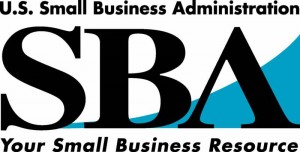 Immigrant Entrepreneurs and Small Business Owners, and their Access to Financial Capital
Immigrant Entrepreneurs and Small Business Owners, and their Access to Financial Capital
Small Business Administration Office of Advocacy
Robert W. Fairlie, Ph.D. UC Santa Cruz
First published May 2012
Robert Fairlie on behalf of the Small Business Administration dives deep into data from the US Census’s 2007 Survey of Business Owners and the 2010 Current Population Survey to determine the way immigrant-owned businesses shape the economy. A lack of data availability has hampered the ability of researchers to assess immigrant entrepreneurs’s ability to access financial capital; these surveys represent the first time in fifteen years that the Census Bureau has collected information on immigrant business owners.
Immigrants are more likely to create and own their own businesses than native-born Americans — in fact, immigrants are more than twice as likely to form their own business than native populations, and even more so in recent years. Entrepreneurship is generally counter-cyclical — that is, people are more likely to start their own business when they’ve lost their jobs and the economy is bad. This is especially true for immigrants; the entrepreneurship rate has nearly tripled within the immigrant community since 2006, while remaining mostly flat for non-immigrants. Immigrants currently open businesses at double the rate of non-immigrants.
Still, they could be forming businesses even faster than they are. Among other considerations, immigrant business owners are much less likely to own their own home than native business owners are, and homeowners have historically been 10% more likely to start their own business than non-homeowners, most likely due to homeowners being able to use their homes as leverage against other loans. Fairlie points out a crucial complication, however: as the Great Recession was primarily sparked by a collapse in the housing market driven by sub-prime lending, the ability of homeowners to capitalize on their property has cratered. “The estimated effect of home ownership on entrepreneurship decreases essentially to zero in the great Recession,” he explains. “For this time period, … home ownership is not associated with a higher rate of entrepreneurship.”
There’s a lot more meat in the report — including sources of startup capital among immigrant and non-immigrant entreneurs and the number of jobs created on average by immigrant owned businesses — so dig in.